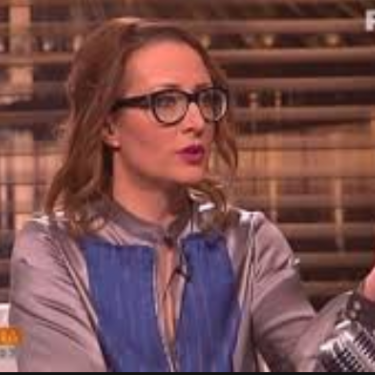Serbia : RSF urges Serbian authorities to condemn verbal attacks on journalists

Reporters Without Borders (RSF) calls on the Serbian authorities to condemn an alarming series of verbal attacks on journalists in recent days and to stop this dangerous escalation in threats to the freedom to inform.
The most serious case has been the wave of hatred unleashed against Tatjana Vojtehvski, an investigative reporter for the commercial TV station TV Pra, after the station screened the third in a series of reports by her about alleged embezzlement at a factory in the town of Lucani.
The CEO of the factory and its spokesman reacted by staging a protest outside the plant and called for Vojtehvski to be jailed on the grounds that she had attacked a company that manufactures arms for the Serbian defence ministry. Even more troubling was the fact that the defence ministry itself relayed the protest call.
A well-known investigative journalist, Vojtehvski has long been the target of threats and harassment from Serbian politicians, including President Aleksandar Vucic, and these attacks have been relayed by social networks and the Serbian tabloids. But a street demonstration by members of the public or, at least, factory employees, is an altogether new phenomenon.
“We strongly condemn the harassment of a respected investigative journalist whose reporting ruffled feathers,” said Pauline Adès-Mével, the head of RSF’s EU-Balkans desk. “Regardless of the stories they cover, no journalists should have to fear being imprisoned because of what they investigate and report. We call on the Serbian authorities to public condemn these verbal attacks, which are polluting the public space.”
This serious incident was preceded by a series of verbal attacks on reporters and media outlets that have created an extremely toxic climate for independent journalism.
The Serbian officials and politicians indulging in this kind of verbal abuse in recent days include Marko Parezanovic, a domestic intelligence agency official who said the biggest threat to Serbia nowadays came from “foreign agents who work in the media, NGOs and political parties opposed to the government.”
At the same, Aleksandar Martinovic, a senior representative of the ruling Serbian Progressive Party (SNS), said in the Serbian national assembly that Nedim Sejdinovic, the head of the Vojvodina Journalists’ Association (NDNV) “does not wish his country well” and wants to “harm everything positive that Serbia has accomplished.”
During a national assembly session devoted to the environment the next day, Marijan Risticevic, the representative of a party allied to the SNS, launched his own diatribe against Sejdinovic, accusing him of spreading “spiritual pollution.”
Slavisa Lekic, the head of the Serbian Association of Independent Journalists (NUNS), told RSF: “These recent incidents, which are typical of the criticism that Serbian politicians level against the media, create a climate of hostility towards journalists and generate new attacks.”
The NUNS has registered a total of 60 cases of threats, insults, intimidation and harassment of journalists by public officials since the start of 2016.
RSF also calls on the authorities to investigate a physical attack on Zeljko Matorcevic, the editor of the Zig Info news website, who was badly injured in Grocka on 9 October, when an unidentified young man followed him and them struck him on the head. Those responsible must be identified and brought to trial, RSF said.
The climate in Serbia has become more and more tense since Vucic, the former prime minister, was elected president in April 2017. Vucic uses the pro-government media to intimidate journalists and such labels as “treachery” and “spy in the pay of foreign countries” are becoming common.
Serbia is ranked 76th out of 180 countries in the latest 2018 World Press Freedom Index, after falling ten places in the space of a year.



